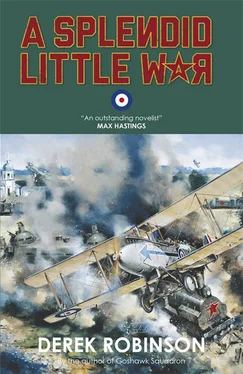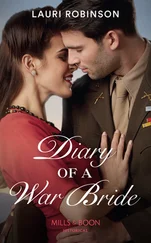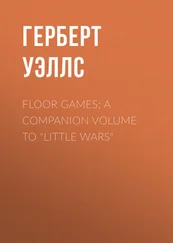“Money.” The general sniffed. “That’s all some people think of.”
“Because prices have gone up much faster than wages.”
“Good point,” Fitzroy said. “I never thought the police would go on strike last year, but they did. Mind you, that was about recognising their union.”
“Everyone talks of the sanctity of labour,” Delahaye said, “but what they really want is hard cash.”
Sir Franklyn had begun building a house of cards. “Look here,” he said. “This is what we’ve been doing at these meetings. Trying to create something without foundation. Why are we in Russia? Not to help our gallant allies who fought the Germans. That’s ancient history. Not to guarantee a fair fight. We can’t. Not to do the decent thing. War isn’t about decency, it’s about power. Not to answer the call of freedom and justice. In Russia, that’s a fantasy. So why are we there?” He looked up. “What are we trying to achieve?”
“Beat the Bolsheviks,” Fitzroy said. He sounded weary.
Sir Franklyn looked at his creation. “Who wants to be the one to blow the house down?”
Weatherby filled his lungs and blew the cards across the table.
Fitzroy took a slim gold watch from his waistcoat pocket. “I have a meeting with the P.M. in five minutes. Unless we have any extenuating thoughts… ? No. If you’ll excuse me, gentlemen.”
They watched him cross the garden.
“Perhaps we’ve overlooked the obvious,” Weatherby said. “Haven’t we got a duty to protect the Empire? The damned Russians have always wanted to get their greedy hands on India.”
“The Empire is a heritage,” Sir Franklyn said. “Future generations won’t thank us if we lose it.”
“Future generations don’t pay to keep it,” Delahaye said.
“Explain.”
“Riots and rebellions. We’re always rushing off to defend bits of Empire. Not cheap.”
“The White Man’s burden, I suppose.”
“Not a burden,” Stattaford said. “Debt of honour. It’s why God created the British Army. And, to a lesser extent, the Royal Navy.”
“I sometimes wonder,” Delahaye said. “I wonder whether we own the British Empire or it owns us.”
“If you don’t like it, go and live in Denmark.”
“It has its attractions.”
Time to leave. They walked across the garden. “This whole Russian affair,” Weatherby said. “Intervention and so on. It would be interesting to know just what future generations will make of it.”
“Nothing,” Sir Franklyn said. “We’ll file it and forget it. Nobody will ever know it happened.”
2
Kursk was burning.
A strong wind from the west blew the smoke away but it also kept the fires alive and made more smoke. Kursk was an old city. The onion domes were brick but the houses were wood and they burned easily.
The trains stopped in a siding a couple of miles from town, and Borodin talked to the drivers. “The line runs through the centre of Kursk,” he told the C.O. “Need I say more?”
Wragge looked at the field alongside the track. “Pretty flat,” he said. “If we get rid of those dead horses, and fill in that shell crater, and pull down that fence… What d’you think?”
“The horses can go in the crater.”
“Good thinking. Uncle can organize that. And you and I will take a stroll, and try to find someone on Denikin’s staff who speaks English.”
They walked along the track. “No roads to speak of,” Wragge said. “Everything is railways in your country, isn’t it? Even the rivers dry up in summer. Before the railways came, how did Russians get from here to there?”
“They walked. Rather like most of the English, until quite recently.”
“Slight difference, old chap. Russia’s vast. Belgorod to Kursk is, what, a hundred miles? With not much in between. We passed the odd village. Can’t image the odd peasant tramping fifty miles to have his appendix removed.”
Borodin was amused. “A Russian peasant would sooner die than pay a doctor. He dies anyway. Most men are old at thirty-five and lucky to see forty.”
“Good God.” Wragge thought about that. “How can you possibly know? You’re not a peasant.”
“The Britannica . 1911 edition. But you’re right about our railways. If Denikin were to march his army from Taganrog to Moscow, it would take six months, his men would be exhausted, the supply columns would be raided by Nestor Makhno and a dozen like him, and we’d be up to the hips in snow. So we fight our battles on the railway. It’s easier to advance by train.”
“Unless the enemy rips up the track and blows the bridges,” Wragge said.
“Oh well. Nobody said that war was fair. And unless I’m mistaken we’ve found Denikin’s Staff H.Q.”
The train had once belonged to the Tsar, and the carriages bore the Imperial emblem of the double-headed eagle. Planted alongside the track was the red, green and white flag of Denikin’s One Russia, Great and Undivided.
A sentry saluted and they climbed aboard, into a very military setup: maps, typewriters clacking, paperwork, officers with a lot to say to each other. Immediately, Borodin recognized several people and was welcomed with smiles and embraces. He said something about Wragge, and everyone applauded. A servant offered a chair and a glass of tea. For the first time since Tsaritsyn, Wragge’s spirits were lifted by the feeling of momentum found in an army that believed itself unstoppable.
Borodin introduced a young colonel whose English was good enough to say that unfortunately Denikin was elsewhere, awarding medals, but undoubtedly the arrival of the R.A.F. would thrill him. Kursk would soon be taken. The enemy was in full retreat. He might attempt a rearguard action. Denikin would wish the squadron to bomb him to… He looked at Borodin.
“Smithereens.” To Wragge, Borodin said, “When can we start?”
“Tomorrow,” Wragge said. “Early.”
The colonel embraced him and he spilled his tea, and they all laughed. “Na Moskvu? ” Wragge said.
“First, na Orel ,” the colonel said. “Second, na Tula . Then, na Moskvu .” He spoke with all the confidence of a man who has added one and two and made three.
“And the Red air force?” Wragge asked.
“N’existe pas ,” the colonel said, and everyone laughed again. It was going to be a cakewalk.
3
The wind strengthened. Ground crews turned the aircraft so that they faced into it. They pegged down the wingtips and the tails. They lashed canvas covers over the engines and secured the propellers. The western horizon was as black as spilled ink. They rammed chocks behind the wheels and tied the joystick in a central position.
When the storm came, the wind howled for half an hour and then moved on, leaving the rain to play a drum roll on the carriage roofs all night.
“Listen to it,” Maynard said. “The cockpits will be full to the brim.” He was playing dominoes with Borodin, Jessop, Dextry and the doctor, in her Pullman.
“Unlikely,” Dextry said. “Those Camels are pretty moth-eaten specimens. Plenty of drainage holes. If I look down, I can count the daisies between my feet.”
“I wonder if I ought to get married,” Jessop said.
Maynard cleared his throat and nudged him.
“Don’t be so damned sensitive, Daddy,” Susan Perry said. “I’m a war widow. I’ve seen enough blood to drown you all, and I shan’t get a fit of the vapours because someone mentions marriage. You can’t play a five,” she told Jessop.
“Yes, I can. Bloody good move.”
“Not against a three. Have you played this game before?”
He took back the domino. “I could have sworn it was a three. Honestly, the light in here…”
Читать дальше











